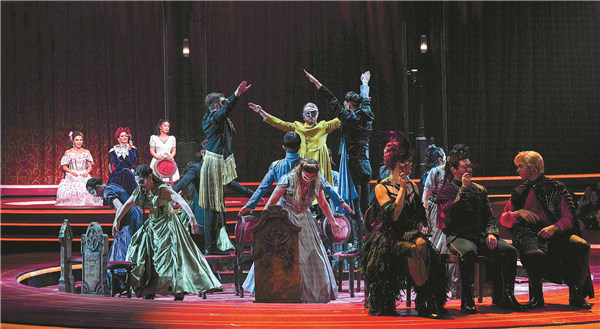

"A performer poured me a glass of wine, and a blue feather fell off one of their costumes and landed in my lap," she recalls.
"It really was a unique theater experience."
Director Chloe Treat says that, while the play tells the story of events set in 1812, it's not a period drama, because the characters go through universal human struggles. This is reflected in the questions they ask, such as, "Am I spending my life the best way I can? Do I act responsibly and what do my family want me to do, or do I follow my heart?".
These issues will relate to people of any time, she says.
"So, for sure, modern young people are going to see themselves in there."
The costume designer wanted the show to represent a unique sense of Shanghai style and drew inspiration from haute couture and runway fashion, instead of period clothes, she says.
"The elegant style makes it feel like it could be in 1812, or it could be today."
Music director Or Matias says Malloy's music also "transverses timelines", as it draws from throughout the last 200-plus years of history in terms of sound, from Russian folk songs to rhythm and blues, and from 1980s' power ballads to hip-hop.
"Anything you can think of may be turned into the score," he says.
The experiences presented in the show are so universal that Malloy just chose from whatever music genre could best express the emotions, says Treat, the director.
"So, we get this smorgasbord of musical styles that all helps to serve the story."
Matias and Treat met during past productions of the show eight years ago. They're married.